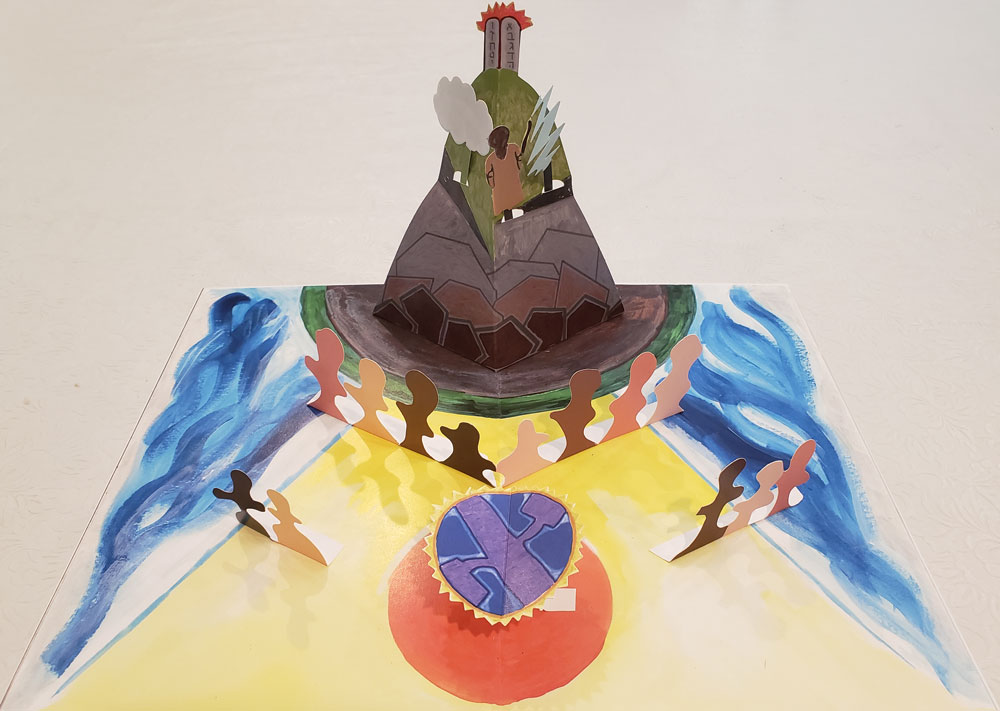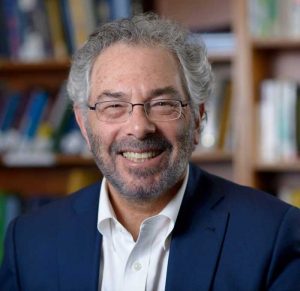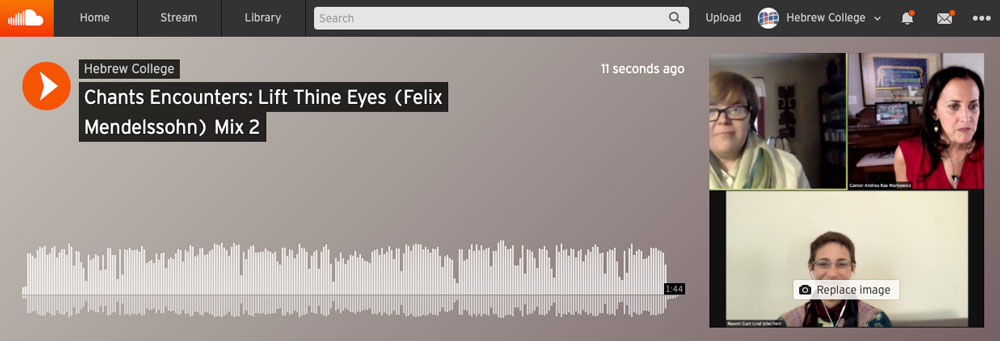Community Blog Innovating Art, Music, and Spirituality at a Time of Challenge

How can the arts enhance our spiritual connection—even when we cannot be together?
This year, students in the Hebrew College’s Innovation Lab tackled this question—implementing innovative creative visual, musical, movement-based, and personal narrative projects to enhance congregational and religious life during the unprecedented time of COVID-19.

The Innovation Lab at Hebrew College provides funding to current or recent Hebrew College ordination students and alumni to design and implement innovative approaches to spirituality. Participants take part in a weekly seminar where they discuss models of leadership and characteristics that are essential to a leader’s success—such as fear of failure, courage, optimism, and resilience—as well as practical models of project development and management, including evaluation and fundraising. The seminar also serves as a space for reflection and support, where participants can workshop their projects with one another to elicit critique and feedback.
The program launched in-person during Academic Year 2019-2020, but was forced to pivot to Zoom due to the pandemic. Inaugural projects included an alternative monthly Shabbat minyan, a day-of-study about interfaith and mixed-heritage relationships, a conference on spirituality and social justice, a spirituality fellowship for college students at Boston University, and a pluralistic community of musicians and songwriters that provided an outlet for creative conversation and meaningful connection during an uncertain time.
“Last year, students in the Innovation Lab were implementing their projects just when the world as we knew it was changing profoundly: quarantine, isolation, the inability for the community to meet face to face,” Rabbi Summit said. “This year, projects were designed to enhance and support communities as they explored what it meant to create Jewish life in digital format.”
Rabbi Summit said during the pandemic, digital platforms opened new possibilities for engagement in the arts, as people began to “travel” virtually to new congregations or performances that they never would have previously visited. Students were able to build on that energy, developing new approaches to artistic expression in spiritual and communal life, through dance, movement, and sharing the narrative of their personal journeys. Since the Innovation Lab met on Zoom, students and alumni located around the country were also able to take part in the experience.
“This year, we talked about what it meant to be able to assess what people needed and what the current situation demanded of us as leaders, and we looked at the creativity that the Jewish community used when we had to go through crises in the past,” Rabbi Summit said. “The members of the Innovation Lab were thought leaders at a time when the Jewish community needed innovative leadership more than ever.”
Hebrew College Innovation Lab Projects 2021
Naomi Gurt Lind: I am creating a short series of podcasts, “Chants Encounters: A Podcast at the Corner of Music and Spirituality.” In each episode, two musically inclined religious leaders of different faiths will engage in a moderated conversation on theology, shared texts, similarities, differences. Each episode will also feature a musical selection based on a shared text (such as a psalm) in which the participants sing together.
Jeanne Snodgrass: I am exploring collaborative ways to build an embodied Jewish experience by using movement and prayer language rhythms. Our Jewish tradition, for all its complicated relationship with physicality, already invites us in through movement and our bodies—kneading dough for challah, engaging all of our senses during a havdalah service, and stepping backwards and forward and bending during prayer as just a few examples. The intent of this project is to work in small groups to create a series of movements that can serve as part of a meditative practice in a manner that engages this link to Jewish heritage and offers alternative possibilities in expressing our individual connections to one another and the world around us.
Akiva Nelson: I am conducting an interview project entitled Hashiveinu (Turn Us), exploring the stories of people who once had a limited or non-existent connection to Judaism but have since deepened their relationship. Hashiveinu will offer insight into the reasons why these people sought to deepen their relationship with Judaism, the barriers that had prevented them from doing so in the past, and the key moments that altered their trajectory.
Sam Tygiel: My project empowers Jewish student leaders at my alma mater, Macalester College, to create and execute powerful, uplifting and musically rich student-led prayer experiences. Over a series of weekly zoom sessions focused on experiential learning, discussion and brainstorming, we are developing and leading meaningful prayer services that meet the needs and desires of community while aiming to create space for students to have transformational encounters with Judaism, prayer and music. We are also developing a curriculum to help the students envision new possibilities, develop new skills and begin to think about how to pass on their learning and wisdom in a way that can sustain and enliven Macalester prayer life into the future.
Rachel Slusky: “Our Jewish Soundscape” bridges the gap between generations by sharing in familiar Jewish music to teach the next generation to value the often-forgotten members of our communities, learn about the musical soundscapes that influenced their lives. At the same time, sharing important Jewish music awakens memories and feelings of worth and identity in the elderly. I will first interview and record elderly members of my congregation and then bring them together with groups of the congregation’s children to hear their stories, learn their songs and sing together. Sharing familiar Jewish music will create a strong and valuable bond between these generations—a connection that is especially vital in the time of the coronavirus.
Marc Stober: My project is the development of an educational resource website, TropeTeacher.com, which combines educational knowledge/ pedagogy, Jewish knowledge, and technical knowledge. It will be a resource for learning Torah reading, and a social network/marketplace that is able to connect cantillation teachers with their student, both within existing communities, and for people who are studying/teaching independently.
Elyssa Joy Auster: My project is the development of interactive crafts project, a do-it-yourself pop-up book, to illustrate the themes and concepts of the Jewish festivals, beginning with the development of a pop-up book on Shavuot. I see this as “hands-on” Torah study and am developing lesson plans to teach relevant biblical texts and midrashim exploring the meaning of the holiday for contemporary Jews. At the end of the study session, participants will have created a piece of art to underscore the concepts of the holiday.
Micah Shapiro: I am releasing my second album, and my first full length LP, in the fall of 2021. This album is rooted in my process of trying to bring Hebrew text to life through musical interpretation of the text. While my initial intention was to do a live video album, the pandemic has caused me to pivot to a layered studio album. As a result, I have more of an opportunity to lean into complex harmony arrangements and instrumentation, pushing the envelope of what we might typically associate with western influenced Jewish music. The project is part art piece, to be enjoyed as a listening experience, and part inspirational and practical guide for tefilah and communal song leaders. A few select songs from the album will be adapted and recorded as live videos after the pandemic.
Jackson Mercer: “Ot Hi L’olam” is a comprehensive practical and Halakhic resource as well as comprehensive curriculum for the art of Safrut, Hebrew sacred calligraphy. The project focuses particularly on addressing the needs and questions of Jews whose voices have traditionally been marginalized and omitted from ritual and Halakhic conversations.
Simcha Halpert-Hanson: TransHallel is a trans-led monthly Rosh Chodesh Hallel service open to the public with the goal of empowering and increasing visibility of transgender ritual leadership. The project also tutors trans Jews in leading Hallel who haven’t previously led due to literacy and/or self-perceptions around being able to sing and/or alienation from ritualized prayer as a trans person.



